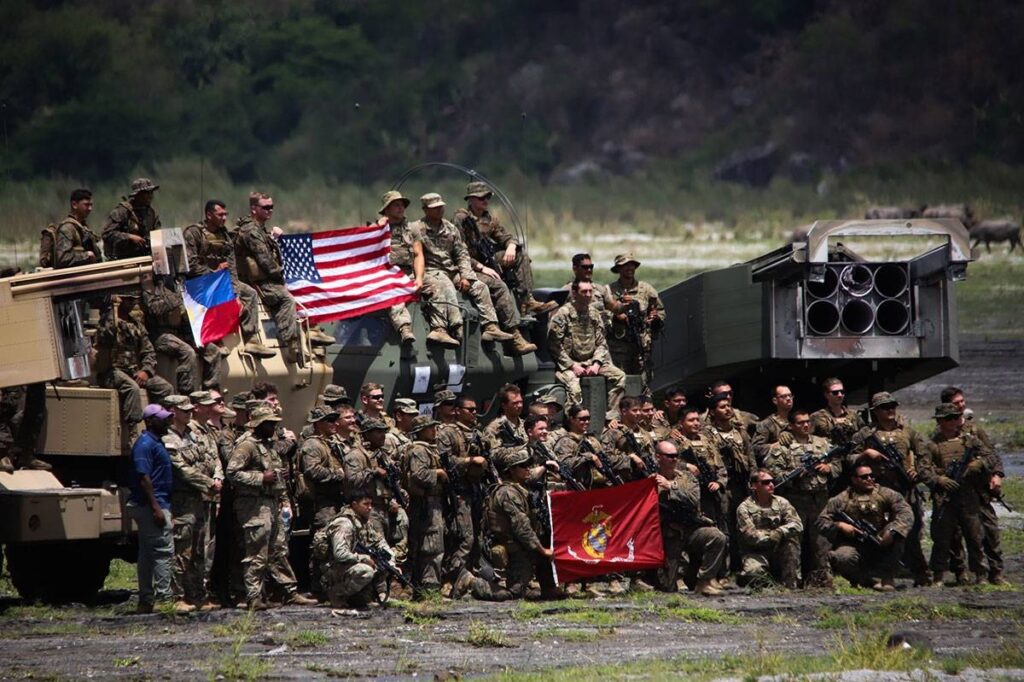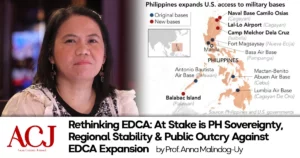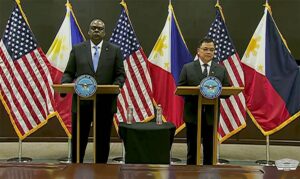
IN a changing and evolving world order, from a unipolar to a multipolar world, it’s just not enough to pursue an independent foreign policy per se, which in reality is primarily more of a “balancing act” between China and the US concerning the geopolitical realities and challenges the Philippines and the world at large are facing.
As a country, the Philippines needs a genuine and authentic independent foreign policy in every sense, and that would mean complete neutrality and positioning itself as non-aligned. This could be done by downgrading or abrogating the Visiting Forces Agreement (VFA), Enhanced Defense Cooperation Agreement (EDCA), and Mutual Defense Treaty (MDT). This means rejecting outright alignment with the US. Such action will allow the Philippines to have more leverage with China because the apprehension of military encirclement by the US is a top concern of China in the South China Sea (SCS) and even in the Taiwan Strait.
Likewise, the Philippines should draw lessons from its World War 2 experience. The Philippines was invaded by Japan not because it was at war with Japan. The country was invaded by Japan precisely because it was home to the largest US military installation outside America. Consequently, the Philippines became a battleground of the war between Japan and the US, like Ukraine is the battleground and the proxy in the ongoing Russia-US-led NATO full-blown and hybrid proxy war.
In contemporary times, we have a similar situation. The country hosts foreign military facilities (bases) and soldiers. The Americans have boots on the ground and military facilities because of EDCA.
Currently, there are EDCA (US) bases across the Philippines, namely Subic Bay Naval Base, Basa Air Base, Fort Magsaysay, Antonio Bautista Air Base, Mactan-Benito Ebuen Air Base, and Lumbia Air Base. They’re near or on the SCS, significantly enhancing the US military’s ability to challenge Beijing. But there’s more. An additional four EDCA bases are on the way, and this is a done deal as far as the current administration is concerned. On this note, it is imperative to ask why the US is pushing for the expansion of EDCA.
Uncle Sam Cold War mentality
Victor Corpus, a geopolitics and defense analyst and a retired brigadier general of the Armed Forces of the Philippines (AFP) and former chief of the Intelligence Service of the Armed Forces of the Philippines (ISAFP), spoke at a webinar last year (Dec. 17, 2022) on the theme, “PH-US Defense Cooperation and its Geopolitical Implications,” organized by the Asia Century Philippines Strategic Studies Institute Inc. Corpus said that the post-Cold War doctrine of the US will not allow any other country to surpass it in terms of economic, military and technological affairs. Corpus spoke of how China’s late leader Deng Xiaoping adopted the foreign policy of “laying a low profile” as China was not yet prepared to go into conflict with the US, especially with its modern warfare capabilities (in outer space) back then. Corpus also emphasized that even though China’s economic and military power strengthened drastically, it is still surrounded by some 400 US military bases, and the idea of preventive warfare remains an option to contain the expansion of China’s influence. He pointed out that weapons could be deployed to neighboring countries such as South Korea, Japan, Australia and the Philippines. It is possible that under such scenarios, the conflict between China and the US could potentially escalate.
In the same seminar, Dr. Henry Chan, senior visiting research fellow of the Cambodia Institute for Cooperation and Peace and an Adjunct Research Fellow of the Integrated Development Studies Institute (IDSI), stated that the use of the Philippines as a support military base by the US could be a very serious issue if there is a conflict in Taiwan, especially since China defines the Taiwan issue as its internal affair. The consequences will be against the national interest of the Philippines if it is indirectly inserted into the conflict over Taiwan.
Conclusion
Indeed, the reality that the Philippine government has opened further its military facilities to the US and other foreign forces, like the Australian military forward base in Zamboanga — as reported in an article in Mindanao Cross and Maritime News on May 4, 2022, entitled “Say no to foreign military base in Mindanao” by Yonax Gutierrez — is somewhat bothersome and worrisome.
The new administration under the leadership of President Ferdinand “Bongbong” Marcos Jr. must assess and look into these matters with much prudence and reservation.
Likewise, the current administration must consider that the 1987 Constitution prohibits the existence of foreign military bases and troops in Philippine territory.
The PH-US MDT, EDCA and VFA have a lot of infirmities, lopsided and skewed provisions favorable more to the US than the Philippines that need to be revisited and reassessed. These agreements are antithetical to the pursuit of a genuinely independent foreign policy, non-aligned stance for the Philippines, and most of all, safeguarding and preserving the country’s sovereignty and independence.
Above all, the country should draw lessons from the experience of Ukraine. In this scenario, Ukraine is a pawn in the geopolitical maneuvers of the US because of its strategic geographical location in the same manner that the Philippines will end up a pawn or a proxy of the US and its Western allies to counter the rise of China and if war or military confrontation breaks out in the Asia/Indo-Pacific region. Such a scenario will be most precarious and unfortunate for the Philippines.
Hence, the country’s leaders must be prudent in positioning the Philippines amid this ever-volatile, challenging, and changing world order and geopolitical realities.
Likewise, the country should transition its military relations with other countries from military alliances to military cooperation with countries in Asean and the wider Asia-Pacific, even with China, while championing the country’s core national interests and Asean centrality.
Most importantly, the Philippines should instead focus on its own economic and social development and must avoid anything that will disrupt its quest toward genuine development, economic success and prosperity.
Also, the peace march and anti-war protest last March 4 organized by various civil society groups should be sustained for the current administration and BBM to be conscious that Filipinos are not in favor of EDCA and the militarization of the Philippines by the US and its allies like Japan. Moreover, Filipinos must continue to oppose the full implementation and expansion of EDCA. This is quite important, or the Philippines will never break free from being a US defense and security outpost in the Pacific for over a century now.
Source: The Manila Times
https://www.manilatimes.net/2023/03/09/opinion/columns/the-need-for-a-genuine-independent-foreign-policy-in-a-multipolar-world/1881911



